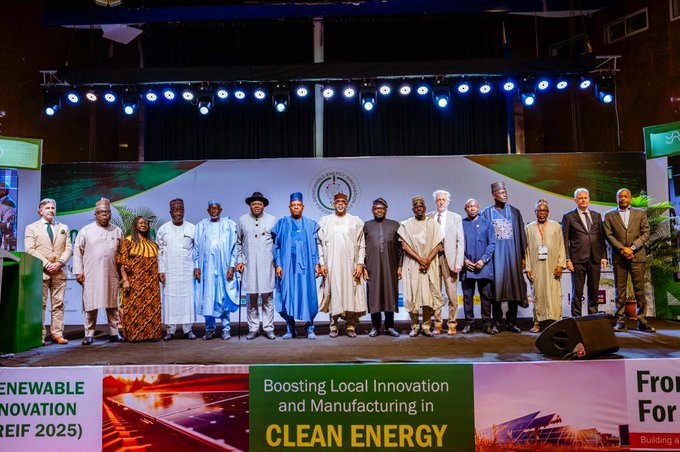Vice President Kashim Shettima has announced that Nigeria’s energy transition strategy under President Bola Tinubu is expected to unlock investment opportunities exceeding $410 billion between now and 2060.
This, he said, will position the nation as a leader in Africa’s renewable energy sector.
Speaking at the inaugural Nigerian Renewable Energy Innovation Forum (NREIF) 2025 in Abuja on Tuesday, Shettima stated that over $23 billion of this investment is necessary to close the energy access gap for millions of Nigerians currently living without electricity.
READ ALSO: Shettima assures Nigerians in diaspora of robust engagement, economic progress
Shettima emphasised that as the global community moves toward net-zero emissions, Nigeria and the African continent must keep pace.
“We are blessed with the minerals that power clean technologies, and Nigeria brings to the table youth, ambition, and untapped renewable potential,” he declared.
He urged stakeholders to seize the moment for a renewable energy revolution.
The ambitious goal includes delivering a power system with a total installed capacity of 277 gigawatts by 2060.
Shettima assured investors and partners of Tinubu’s commitment to establishing policy frameworks that will cultivate a self-sustaining renewable energy market.
This includes enhancing local manufacturing incentives, streamlining regulations, and deepening collaborations with state governments and development partners to mitigate risks for private capital.
Highlighting the “Nigeria First” industrial strategy, Shettima stressed that the future of Africa’s renewable energy supply chains must be rooted domestically, from “solar panel assembly lines in Lagos to battery recycling hubs.”
He also hinted that the Federal Ministry of Power is preparing policies to establish a “decentralised, competitive, and inclusive electricity market.”
Shettima also announced significant immediate investment mobilisation resulting from the forum.
“More than $400 million in new investment commitments are being mobilised into Nigeria’s renewable energy manufacturing value chain,” he disclosed.
These investments, covering solar panels, smart meters, battery storage, and recycling facilities, are projected to create over 1,500 direct jobs across several states, reflecting increased international confidence in Nigeria’s green industrialisation efforts.
However, Adebayo Adelabu, the Minister of Power, stated that NREIF marks a new chapter focused on leveraging innovative partnerships to achieve local solar energy production targets.
He mentioned the government’s multifaceted approach, including the Integrated National Electricity Policy, to address challenges and decentralise the power value chain.
The Managing Director of the Rural Electrification Agency (REA), Abba Aliyu, described the forum as a crucial step for Nigeria to accelerate its green energy goals.
The UN Deputy Secretary-General, Amina Mohammed, represented by Mohammed Fall, pledged the UN’s support for Nigeria’s efforts to build a vibrant local energy sector.
READ ALSO: Shettima urges rail renewal to make Nigeria Africa’s logistics hub
The Dutch Ambassador to Nigeria, Bengt Van Loosdrecht, reaffirmed his country’s position as a reliable partner in the sector.
In a key development at the event, the governors of Jigawa, Bayelsa, and Ogun States, along with the management of REA, signed multiple Memoranda of Understanding (MOUs) with various private sector development partners, including the Dutch government.



